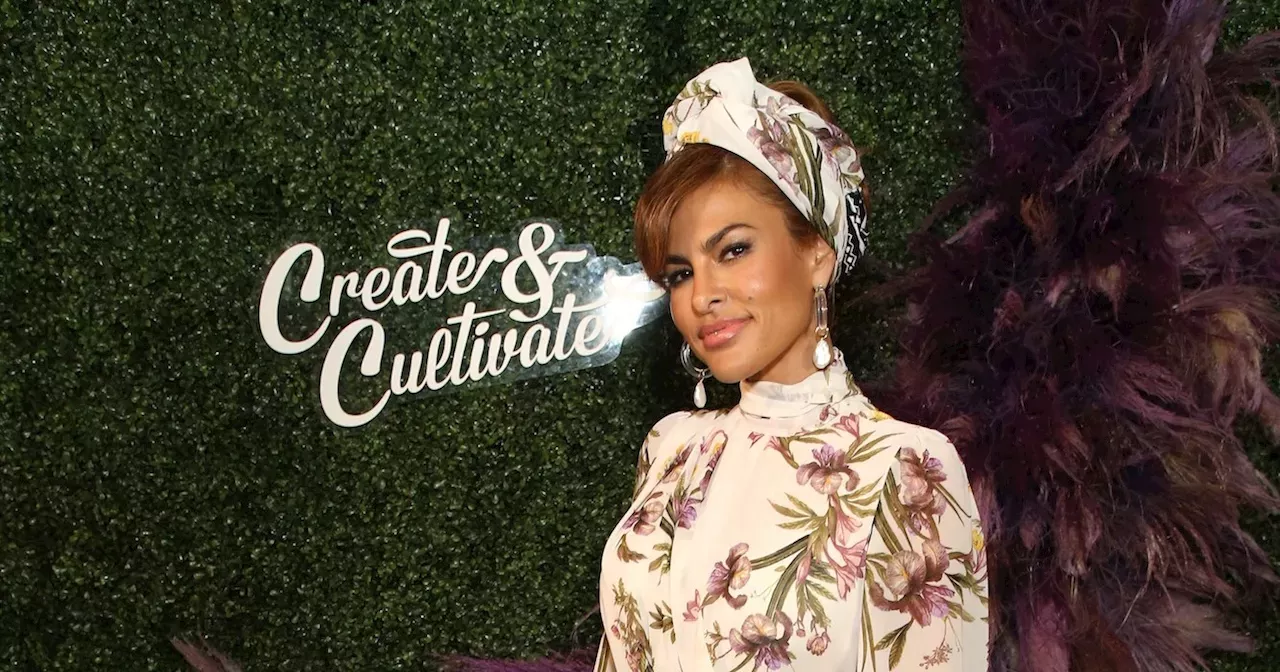It’s no secret that an ending can make or break a movie. After all, the audience is likely to remember a lackluster film's powerful ending more than the reverse. Indeed, Hollywood history is filled with examples of endings that, for one reason or another, were anticlimactic and failed to live up to the movie as a whole.
At the same time, there are also some fascinating examples of films that have used an anticlimax to achieve a rather contradictory sort of power, illustrating the extent to which a subtle and skilled filmmaker can use this device to cleverly subvert audience expectations. 'Civil War' Alex Garland’s Civil War immerses viewers in the dark and tumultuous world of an American torn asunder by civil war. It primarily focuses on a group of war photographers trying to get to DC to interview the President of the United States before his inevitable downfall.

In the end, one of the journalists (played by Kirsten Dunst ) gives her life so that her young protege can live, and the latter snaps a picture of the President after he’s killed. It’s a macabre way to end the movie and an anticlimactic one, leaving the viewer wondering what the point of it all was. 'The Grey' Liam Neeson has made a name for himself acting in various adrenaline-pumping action films.
In The Grey , he plays John Ottway, a man stranded in the wilderness who has to survive an attack by a group of grey wolves. The film’s main narrative ends with a fade to black as he prepares to confront the alpha, which feels like a cop-out for a film that has already shown the lengths he will go to survive. Not even a post-credit sequence showing the man and the wolf slowly dying is enough to make up for the anticlimactic nature of the ending.
'There Will Be Blood' There Will Be Blood features some extraordinary acting from Daniel Day-Lewis, who plays Daniel Plainview, a man who strikes it rich by discovering oil. As he gains wealth, however, he slowly loses himself. In the film’s conclusion, he ends up bludgeoning Eli, his long-standing nemesis, to death before making an offhand remark to his butler.
It’s a rather somber and bleak ending, but strangely, this is in keeping with the cynical point of view of the film as a whole, which, after all, is focused on one man’s fall from grace. 'Horizon: An American Saga – Chapter One' Kevin Costner is no stranger to the western genre, and in Horizon: An American Saga –Chapter One, he really swings for the fences. The film is sprawling and epic but struggles to bring all of its competing storylines into a coherent whole.
More distressingly, it also ends without any of the various stories being resolved in any meaningful sense. Since the viewer already knows that there will be more entries in the franchise to come — thanks to a rather bizarre sizzle reel that serves as the real ending to the film — it all comes to feel like a great deal of setup with no real payoff. 'Babylon' Damien Chazelle took a number of risks with Babylon , his paean to the excesses and beauty of Hollywood’s silent era.
Much of the action focuses on young Manny, who gets drawn into the darkest part of the industry before finally breaking free, and the film ends with him gazing up at a showing of Singin’ in the Rain and a collage of the history of Hollywood movies. In addition to being anticlimactic and not particularly satisfying in terms of narrative, it’s also one of those moments that feels too pretentious to be emotionally compelling. 'No Country for Old Men' Joel and Ethan Coens’ No Country for Old Men is a bleak and blood-soaked adaptation of the novel by Cormac McCarthy.
Tommy Lee Jones' Ed Tom Bell is arguably the moral heart of the tale, and he is opposed by Javier Bardem ’s psychopathic killer Anton Chigurh. However, the two never really get the confrontation the viewer expects, and the film instead ends with Ed sharing a pair of stories with his wife. It’s soft and understated and far more restrained than the violent film that has preceded it, and this anticlimactic nature gives the ending its unique power and appeal.
'Promising Young Woman' Promising Young Woman , Emerald Fennell ’s debut, certainly is a challenging film, and Carey Mulligan gives a remarkable performance as Cassie Thomas, a young woman seeking justice and revenge against those responsible for her friend’s death. In the end, she is killed by the same man, though this sets in motion the chain of events that leads to his arrest. Even so, there’s still something shockingly (if effectively) anticlimactic about seeing a film’s hero die before the end, even if she does ultimately get the victory.
'Pay It Forward' Few movies of the early 2000s are quite as emotionally manipulative as Pay It Forward . Haley Joel Osment is undeniably charming as young Trevor McKinney, who sets in motion the “pay it forward” moment, in which someone does a good deed without expecting payment. However, he ends up dying after intervening in a fight, and the film ends with a vigil held in his honor.
It all feels a bit too on the nose, and it’s hard to shake the feeling of being emotionally manipulated. 'Three Billboards Outside Ebbing, Missouri' Three Billboards Outside Ebbing, Missouri features a pair of powerful performances from Frances McDormand and Sam Rockwell. She portrays a mother desperate to get vengeance for her daughter while he plays a cop who reluctantly joins with her.
Rather than providing any sort of closure to McDormand’s Mildred and her quest, the film ends with the two of them hunting down someone unconnected to the case but who might have been guilty of another crime. It’s an anticlimactic ending that also serves as an uncomfortable paean to vigilante justice. 'The Hobbit: An Unexpected Journey' Peter Jackson returned to Middle-earth with The Hobbit , which adapted Tolkien’s beloved novel into a trilogy.
The first entry follows Bilbo as his path intersects with that of the Dwarf Thorin and his companions, who wish to retake the kingdom of Erebor from the dragon. However, by the film's end, they’ve only managed to pass the Misty Mountains, with much of their journey left. Given how stretched this first entry is, it feels particularly frustrating for it to end in such an anticlimactic fashion, and one can’t help but wish it had been two films rather than three.
'Star Wars: The Rise of Skywalker' The Rise of Skywalker is a bit of an oddity when it comes to Star Wars films. True, it does tie up Rey’s storyline, but it does so at the expense of the novel moves of the second film, The Last Jedi. In the end, Rey sheds her identity as a Palpatine but instead becomes a Skywalker, which seems to suggest that not much has changed in the franchise after all.
While one can’t be very surprised by JJ Abrams’ approach here, it’s nevertheless a truly anticlimactic ending. 'Don’t Worry Darling' Directed by Olivia Wilde, Don’t Worry Darling largely focuses on Florence Pugh’s Alice, a young woman who seemingly lives in an idyllic community with her handsome, dashing, and successful husband, Jack ( Harry Styles ). However, it turns out the whole thing is a simulation and that her real body is kept in a medically induced coma in the real world.
The viewer last hears her gasping for breath as she seems to have escaped. Given how much Alice has endured during the film, it would have been more effective had she been given an on-screen salvation rather than one that remains out of sight. 'Argylle' Argylle throws everything but the kitchen sink at the viewer.
Bryce Dallas Howard does a fine job as Elly Conway, a mystery novelist who gets roped into an adventure involving a sinister organization known as the Division. Many twists and turns later, it’s revealed Elly was herself an agent but was hypnotized into forgetting her past. The film ends with a teaser of things to come, and while this might seem like a good idea to set up a franchise, in hindsight, it looks like another piece of misdirection, leaving the audience wishing the film had concluded on a more decisive note.
'The Blair Witch Project' When it was released, The Blair Witch Project was met with sharply divided critical responses. Its found footage approach had a remarkable influence on subsequent horror filmmaking, but its ending, which sees the three main characters seemingly entrapped by the entity of the title, left many people wanting more. Paradoxically, the anticlimactic nature of the ending makes it so chilling and ensures that the movie itself will continue to have a very long afterlife in the popular imagination.
'Titanic' James Cameron’s Titanic looms large in the history of Hollywood, as it was a critical and commercial hit. However, its ending has long been seen as somewhat anticlimactic since the elderly Rose drops the Heart of the Ocean into the sea. Given how much the team has gone to recover it, it feels like a bit of a letdown.
Moreover, it’s one of those moments that feels more than a little emotionally manipulative, which is exacerbated by the scene of Rose’s reunion with Jack and the others who perished. 'The Village' M. Night Shyamalan is (in)famous for his twist endings, and while some work rather well, others are clunky and exasperating.
The Village is a strong example of the latter. The audience spends most of the film thinking that they are watching a quasi-horror movie about a 19th-century village surrounded by creatures when, in actuality, it’s just a bunch of modern-day people who have created this little island within the modern world. It’s a conceit that works well enough on paper, but this reveal and the ending fall disappointingly flat in the movie itself.
'The Lord of the Rings: The Two Towers' Peter Jackson’s Lord of the Rings trilogy is truly an astounding cinematic accomplishment. The second volume, The Two Towers , has many rousing scenes — including the Battle of Helm’s Deep — but its ending does feel more than a little anticlimactic. It concludes simply with Frodo, Sam, and Gollum continuing into Mordor.
While it’s understandable why it ends this way, it’s still hard not to want a little more, especially given how much action there has been in the rest of the film and how much of the novel remains to be adapted for the third film, The Return of the King . 'The Happening' Never one to give up, M. Night Shyamalan has repeatedly sought to conclude his movies with twists.
In The Happening , a series of mass suicides is revealed to have been the result of plants releasing hallucinogenic toxins, thus leading people to lose their minds and take their own lives. In the film’s ending, the whole process seems about to start again. While this is certainly an unorthodox way to end a movie, it’s also a frustrating one, especially since it’s not stated why, exactly, the plants would begin to act this way in the first place.
'Planet of the Apes' (2001) In 2001, Tim Burton released one of his most unpopular films, his remake of the iconic Planet of the Apes . Like its 1968 predecessor, this one focuses on a human astronaut who crash-lands on a planet ruled by apes. There are two twists here; the first is that the original apes and humans were his companions from the space station where he’d been working.
The second is far less successful, seeing him returning to Earth only to discover that his ape nemesis has returned and led an ape revolution. The anticlimactic nature of this ending derailed the whole film, and no doubt helped to scupper plans for a sequel. 'War of the Worlds' Based on H.
G. Wells’ novel of the same name, Steven Spielberg ’s War of the Worlds is a terrifying sci-fi film that depicts a terrifying alien invasion. Like many other Spielberg films, it ends up having a happy ending; however, when it’s revealed that the aliens were unable to survive the microbes of Earth.
While this is faithful to Wells’ novel, it is also anticlimactic from a Hollywood blockbuster perspective since it takes almost all agency out of human hands and places it in an accident of nature. Thomas J. West III earned a PhD in film and screen studies from Syracuse University in 2018.
His writing on film and TV has appeared at Screen Rant, Screenology, FanFare, Primetimer, Cinemania, and in a number of scholarly journals and edited collections. He co-hosts the Queens of the B's podcast and writes a regular newsletter, Omnivorous, on Substack. He is also an active member of GALECA, the Society of LGBTQ Entertainment Critics.
.



















